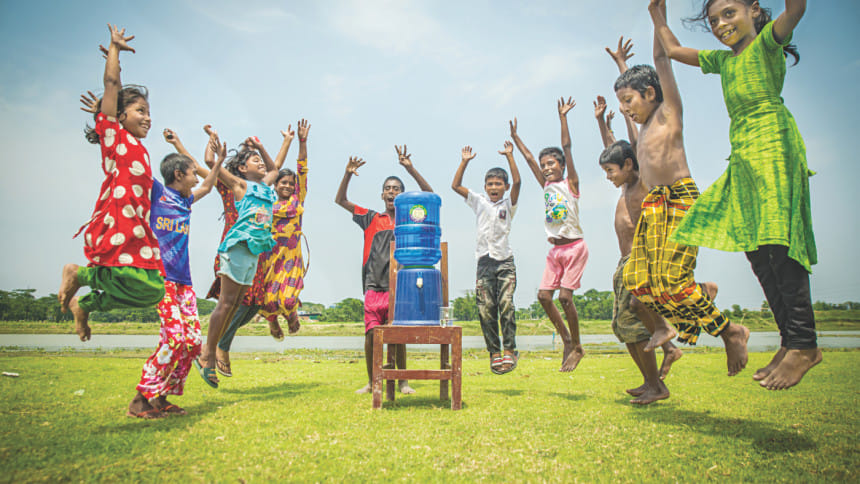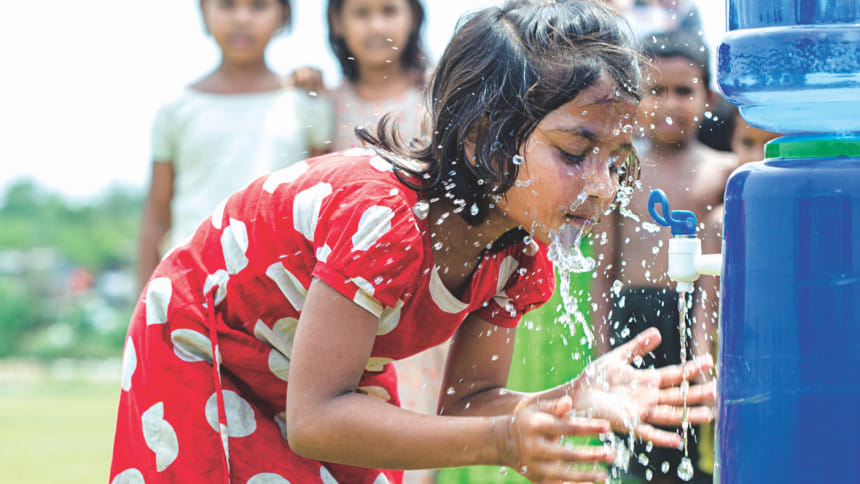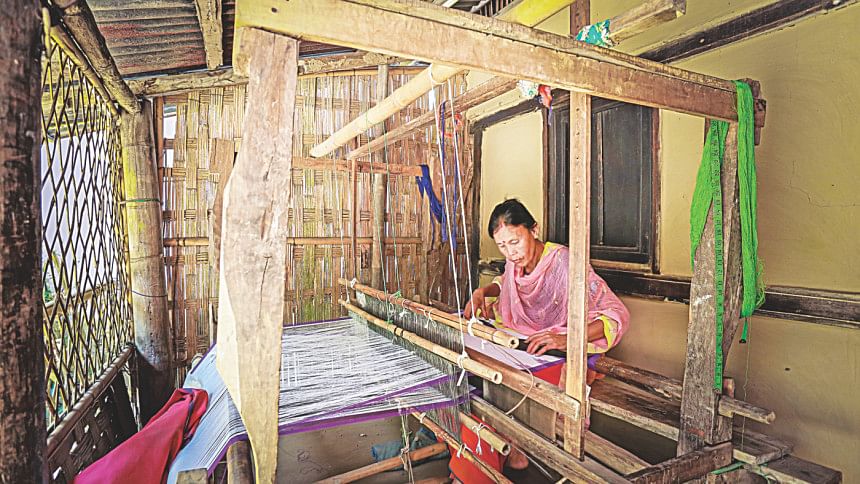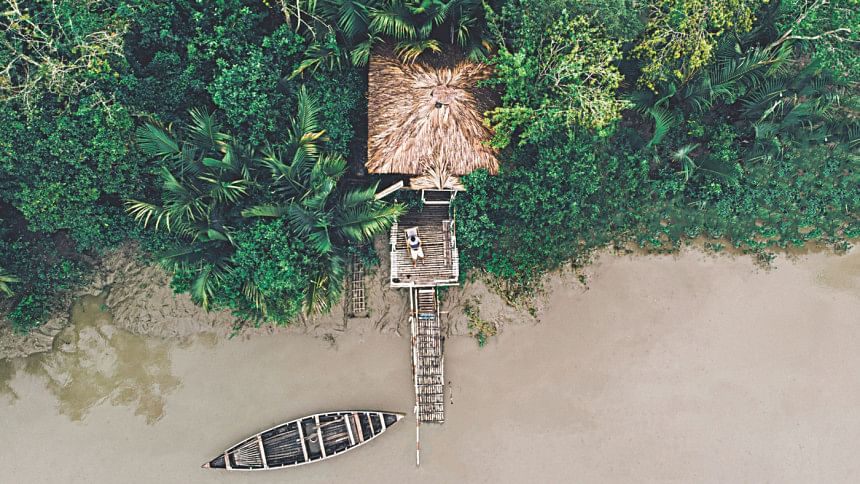Shishir and Avijatrik: Businesses led by compassion

Social business—a relatively rarer practice compared to traditional capitalist ventures—is a for-profit, non-dividend business that is created and designed to address a specific social problem. The profit realised by the business is invested into increasing and improving further operations. Youth all over the planet, including in Bangladesh, are getting more and more frustrated with the orders of the world. They want to contribute towards a better, sustainable future. As part of such efforts, and largely inspired by Professor Dr Muhammad Yunus, the business world in Bangladesh has recently seen a boom of young entrepreneurs getting involved in social businesses, aspiring to create a better Bangladesh. Being a developing country, Bangladesh struggles to find sustainable solutions for many dire needs. Social businesses can be a powerful tool to help solve these issues, while also empowering and engaging the youth.
YY Goshti was among the earliest of such endeavours—the first social business incubator in Bangladesh that offered a platform through which socially conscious entrepreneurship could flourish. Shishir Water and Avijatrik, two organisations thriving to create a sustainable future for Bangladesh, are startups incubated by YY Goshti. The Daily Star spoke with their entrepreneurs to learn about their visions and practices.

Shishir Water
Bangladesh is considered one of the most riverine countries in the world. However, the abundance of safe drinking water is a privilege here. While 39.9 million people are in need of safe drinking water, 3.2 million people have no access to water. The country also has the problem of arsenic contamination of groundwater, causing widespread poisoning and putting millions at risk. Water supplies are further affected by river pollution, poor sanitation, and rising levels of saline. 41 percent of the population are drinking water from contaminated sources, according to
statistics provided by the Bangladesh government.
Shishir Water, also known as simply Shishir, was founded to tackle this pressing issue. A joint social business project of YY Goshti Incubator and the Grameen Telecom Trust, Shishir Water ensures access to clean drinking water for the underserved communities of Bangladesh. Shazeeb M Khairul Islam started Shishir Water in 2017 and currently, Shishir provides clean and safe water for over 2,300 people in the Mymensingh area.
Shishir Water partnered with Watersprint AB, a Swedish water technology company that came up with an innovative UV-LED technology to purify water. The technology uses short-wavelength ultraviolet (UV-C) light to disinfect contaminated water. The project proved challenging at first, as the contamination level of the source water in Bangladesh turned out to be much higher than expected. The Shishir Water team tested eight different samples of water and finally came up with a solution to disinfect the water by cleaning it with non-toxic aluminium sulfate first. After an initial cleaning stage, the water is passed through the tech unit. Two units of Watersprint's technology are currently being used by the plant in Mymensingh.
"Shishir Water is a green company because the energy our technology uses is really low; it is a UV-LED water treatment solution, friendly to the environment. We can run the plants with zero-waste. These plants have the capacity of running on solar power," shared Shazeeb, Managing Director of Shishir Water.
Convincing the rural people to buy water was also part of the challenge. Their primary concern was, "This is river water, why are you charging us?" Their unawareness of the issue at hand made it harder for Shishir to sell their products at first. But the team persisted and, by reaching out to other younger people in the area who could communicate the benefits of using purified river water better, they finally convinced the locals. Shazeeb further explained that when rural local people got sick, they finally became convinced of the severity of the situation.
Shishir came up with a different strategy of pricing using a cross-subsidisation model to further ensure operational sustainability. For the impoverished and the disadvantaged communities, they sell 20 liters of water for Tk 10; they charge Tk 25 from small shops and restaurants; and Tk 35 from other commercial businesses, hospitals, and schools.
For their micro-franchising model, they are investing time, capital, and technology to find a local youth who can then become the entrepreneur. "At some point, the franchisee starts to give us our invested amount back. The rest of the money comes back in little amounts as the investment payment and rest of the money are the profit for the local entrepreneur. Once our money is paid back, it becomes their business. So, in a social business model, we get the invested amount back which helps tackle social problems and create valuable jobs," explained Shazeeb. Shishir targets youths who are uneducated and unable to obtain finance and encouraged them to participate in the Shishir Water Scheme.
Shishir Water hopes to open more plants, expanding the network initially to Chandpur and Sylhet. They hope to create more jobs in the local communities and to engage another 400 young retailers and resellers across the country.
Shazeeb expects more entrepreneurs to tackle water scarcity: "The problem is a big one and we cannot solve it alone," he said. "We need to inspire other people and come up with really small, scalable, yet sustainable solutions."

Avijatrik
It has been said,"travel is the only thing you buy that makes you richer". It lets us experience new cultures, explore
different places and help people in many ways.
Thanks to Avijatrik, helping local communities while travelling is now a possibility. Avijantrik was the first platform to introduce community tourism in Bangladesh, whereby local residents invite tourists to visit their communities with the provision of overnight accommodation. The practice is special because it allows tourists to connect with the local people of a community. In this process, some locals become guides, some provide shelters, some provide transportation, and some cook healthy, hygienic local food for the guests. The concept has introduced to the people of Bangladesh a completely innovative and exhilarating way of travelling and exploring the true beauty of our country.
Avijatrik was also the first to offer 'holiday homes' in Bangladesh—a unique accommodation service that comprises, among its offerings, forest bungalows,
beachside cottages, riverside villas, luxurious private villas, guest houses in tea gardens and many other amenities.
Five friends established the organisation in 2015. Nazmul Islam is the CEO of Avijatrik, while Nehar Sarwar Ayon is the COO. Their mission is to promote a responsible and sustainable tourism scene in Bangladesh, while promoting local travel experiences.
The group primarily aims to employ those who are fiscally vulnerable and currently, more than 300 families are working as hosts for Avijatrik. Working hand in hand with the locals, the organisation gives these hosts proper training, provides them with adequate tools needed to accommodate the guests, and helps them develop facilities for food and other vital touristic activities. Their main goal is to preserve the local culture and nature, while helping the people obtain a more decent and sustainable lifestyle. More than 500 Local Tourism Entrepreneurs are in their supply chain.
Avijatrik is planning to build a massive tourism supply chain while empowering underdeveloped communities. "We want to promote and unlock remote tourists' destinations in Bangladesh, which can be done by engaging local communities," said CEO Nazmul Islam.
Clients of Avijantrik can also customise their tours. Most people in Bangladesh have a tendency not to avail the tour packages offered by tourism companies because they perceive them to be costlier. Avijatrik, however, plans on changing this perception. "Both self-planned trips and traveling with us will cost the same, but Avijatrik will ensure that there are less hassles. Travelling with us is a better option because we will provide more features at the same price," Nazmul explained.
Avijatrik offers 18 multi-day tours at locations such as the Sundarbans, St. Martins Island, Sajek Valley, Sreemangal, Nijhum Dwip, Kuakata and six-day tours around Dhaka. People can choose between partial packages or complete packages that include all the features. Currently, the organisation is planning to launch their mobile application sometime this year, with an enhanced tracking system, safety features, detailed tour planning, and virtual tour guiding features.

Talking about their next ventures, Nazmul shared, "We are working on the next phase of the platform, which is called Local Tourism Marketplace. We want to engage every local tourism entrepreneur and integrate their services with systems and modules. It'll be Bangladesh's first activity-based tourism platform and one of the few local tourism marketplaces around the world."
Avijatrik is sponsored by Startup Bangladesh from the ICT Ministry, and Grameenphone is an equity investor. The platform received the SDG Startup Award for empowering local communities and was recognised among the top 100 social enterprises in South Asia.
"Travelling is not only about sightseeing. You can also travel with purpose and help others while at it," Nazmul said, with the hope that more people will participate in community tourism.

 For all latest news, follow The Daily Star's Google News channel.
For all latest news, follow The Daily Star's Google News channel. 



Comments